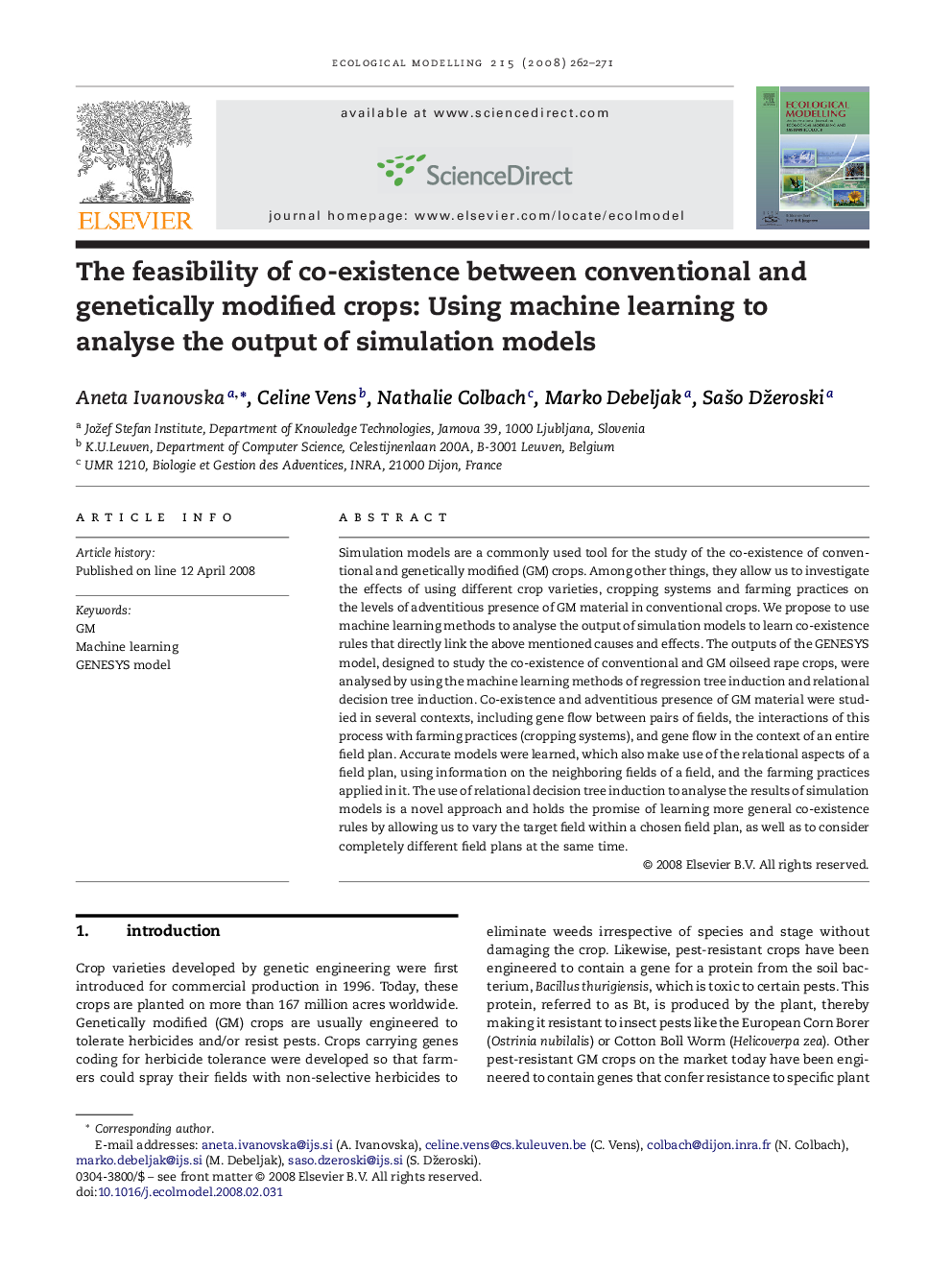| Article ID | Journal | Published Year | Pages | File Type |
|---|---|---|---|---|
| 4378045 | Ecological Modelling | 2008 | 10 Pages |
Simulation models are a commonly used tool for the study of the co-existence of conventional and genetically modified (GM) crops. Among other things, they allow us to investigate the effects of using different crop varieties, cropping systems and farming practices on the levels of adventitious presence of GM material in conventional crops. We propose to use machine learning methods to analyse the output of simulation models to learn co-existence rules that directly link the above mentioned causes and effects. The outputs of the GENESYS model, designed to study the co-existence of conventional and GM oilseed rape crops, were analysed by using the machine learning methods of regression tree induction and relational decision tree induction. Co-existence and adventitious presence of GM material were studied in several contexts, including gene flow between pairs of fields, the interactions of this process with farming practices (cropping systems), and gene flow in the context of an entire field plan. Accurate models were learned, which also make use of the relational aspects of a field plan, using information on the neighboring fields of a field, and the farming practices applied in it. The use of relational decision tree induction to analyse the results of simulation models is a novel approach and holds the promise of learning more general co-existence rules by allowing us to vary the target field within a chosen field plan, as well as to consider completely different field plans at the same time.
